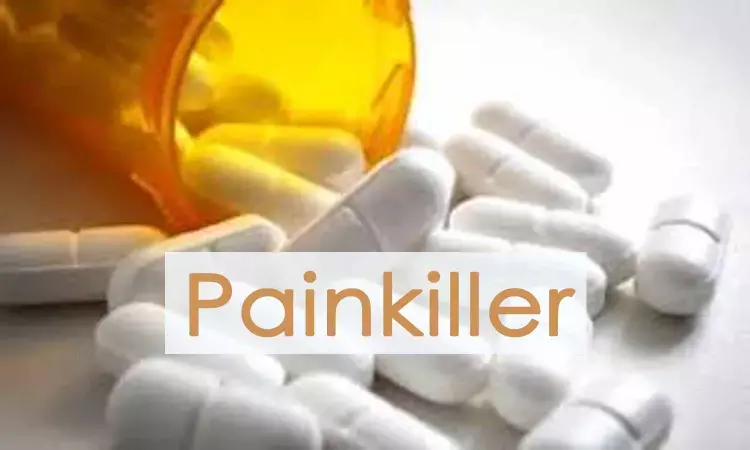- Home
- Medical news & Guidelines
- Anesthesiology
- Cardiology and CTVS
- Critical Care
- Dentistry
- Dermatology
- Diabetes and Endocrinology
- ENT
- Gastroenterology
- Medicine
- Nephrology
- Neurology
- Obstretics-Gynaecology
- Oncology
- Ophthalmology
- Orthopaedics
- Pediatrics-Neonatology
- Psychiatry
- Pulmonology
- Radiology
- Surgery
- Urology
- Laboratory Medicine
- Diet
- Nursing
- Paramedical
- Physiotherapy
- Health news
- Fact Check
- Bone Health Fact Check
- Brain Health Fact Check
- Cancer Related Fact Check
- Child Care Fact Check
- Dental and oral health fact check
- Diabetes and metabolic health fact check
- Diet and Nutrition Fact Check
- Eye and ENT Care Fact Check
- Fitness fact check
- Gut health fact check
- Heart health fact check
- Kidney health fact check
- Medical education fact check
- Men's health fact check
- Respiratory fact check
- Skin and hair care fact check
- Vaccine and Immunization fact check
- Women's health fact check
- AYUSH
- State News
- Andaman and Nicobar Islands
- Andhra Pradesh
- Arunachal Pradesh
- Assam
- Bihar
- Chandigarh
- Chattisgarh
- Dadra and Nagar Haveli
- Daman and Diu
- Delhi
- Goa
- Gujarat
- Haryana
- Himachal Pradesh
- Jammu & Kashmir
- Jharkhand
- Karnataka
- Kerala
- Ladakh
- Lakshadweep
- Madhya Pradesh
- Maharashtra
- Manipur
- Meghalaya
- Mizoram
- Nagaland
- Odisha
- Puducherry
- Punjab
- Rajasthan
- Sikkim
- Tamil Nadu
- Telangana
- Tripura
- Uttar Pradesh
- Uttrakhand
- West Bengal
- Medical Education
- Industry
Risk of internal bleeding doubles among patients receiving anticoagulants and NSAID painkillers: Study

"For people taking blood thinners for blood clots in their legs or lungs, our research highlights the importance of being cautious when considering NSAIDs for pain or inflammation. We recommend that patients consult their doctor before taking NSAIDs along with a blood thinner."
In an accompanying editorial [2] Professor Robert F Storey from the University of Sheffield, UK, said: “Oral anticoagulants (OACs), including vitamin K antagonists (VKAs) such as warfarin and the direct-acting oral anticoagulants (DOACs) apixaban, dabigatran, edoxaban, and rivaroxaban, are central to the treatment and prevention of a range of thrombotic conditions, including venous thromboembolism (VTE), a term encompassing deep vein thrombosis and pulmonary embolism.
“All currently available OACs increase the risk of bleeding. In the management of VTE, a significant proportion of patients are recommended long-term OAC, meaning that cumulative risk can be considerable. OAC-related bleeding can range from events that are usually termed trivial, for example superficial bruising or gum bleeding, through to major bleeding, associated with significant disability or even death.
“NSAIDs are very commonly used for their analgesic, antipyretic, and anti-inflammatory properties. Making up 8% of prescriptions worldwide, but also available without prescription, they are consumed in huge quantities every year.
“It seems clear that avoiding NSAIDs in combination with OAC is the safest strategy to avoid excess bleeding risk. However, if this is not possible, what mitigation can be put in place? NSAID prescription should obviously be at the lowest dose and for the shortest time possible, but choice of agent and route may also be important.
“An episode of VTE mandates initiation of anticoagulation, usually an OAC, in all but the rarest of circumstances. However, when doing so, physicians must consider the full context of a patient’s bleeding risk factors, including NSAID use. It is important to appropriately counsel the patient, consider alternatives to NSAIDs, including non-pharmacological therapies, and pursue all possible mitigation strategies to reduce the chance of an adverse outcome.”
Dr Kamal Kant Kohli-MBBS, DTCD- a chest specialist with more than 30 years of practice and a flair for writing clinical articles, Dr Kamal Kant Kohli joined Medical Dialogues as a Chief Editor of Medical News. Besides writing articles, as an editor, he proofreads and verifies all the medical content published on Medical Dialogues including those coming from journals, studies,medical conferences,guidelines etc. Email: drkohli@medicaldialogues.in. Contact no. 011-43720751


